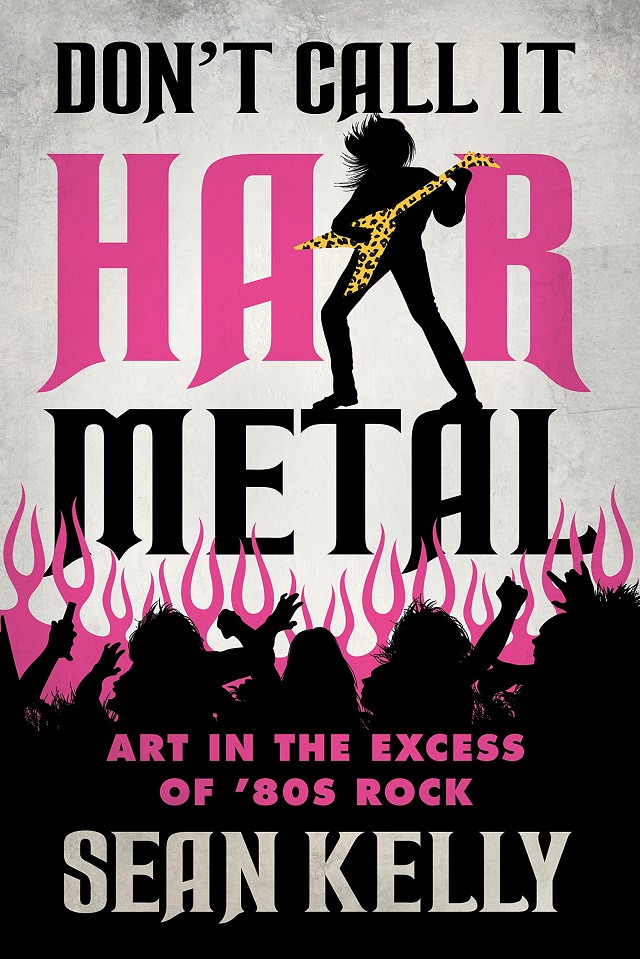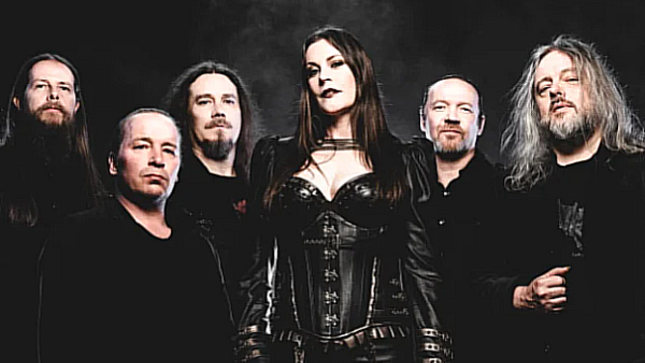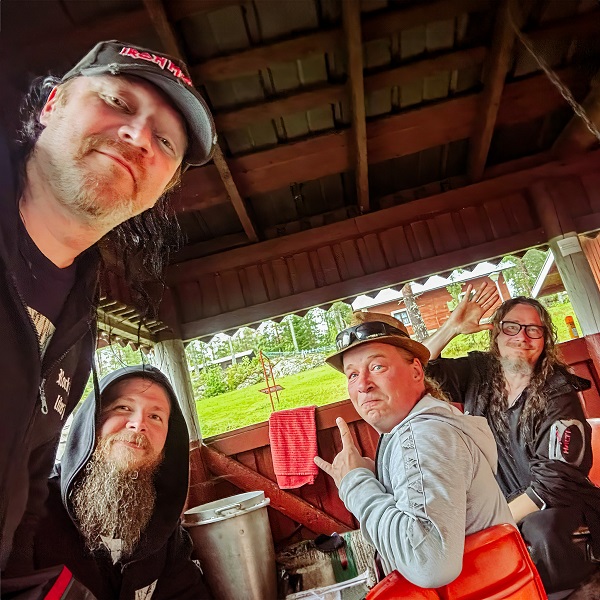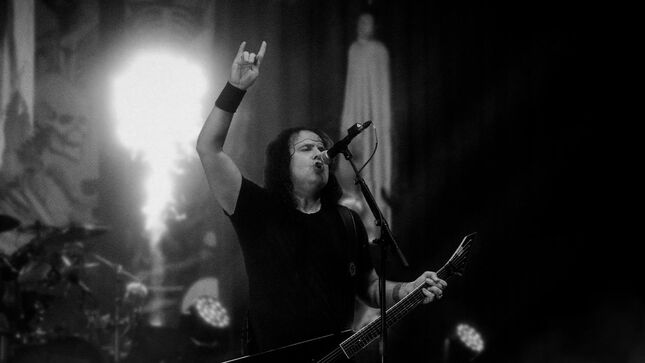
“I have spent my life defending a musical style I love above all others. ’80s hard rock is important music, it matters,” proclaims guitarist and author Sean Kelly in his newly published second book, Don’t Call It Hair Metal, available now via ECW Press. Subtitled, Art In The Excess Of ‘80s Rock, Don’t Call It Hair Metal is the follow-up to Metal On Ice – Tales From Canada’s Hard Rock And Heavy Metal Heroes, published in 2013 via Dundurn Press.
For those unfamiliar with Sean Kelly, he has performed with Lee Aaron, Coney Hatch, Helix, Gilby Clarke, Dee Snider, Nelly Furtado, and his own band Crash Kelly, amongst others. For Sean, writing Don’t Call It Hair Metal was a personal mission he just had to complete. “Absolutely,” begins the uber-passionate six-stringer. “What I was trying to do was, I wanted to speak to the importance this music held to me as a listener. It’s music that I’ve carried with me from when I started listening to it when I was ten years old, up to now when I’m 50 years old. For 40 years, this music has been the soundtrack to my life. It’s part of the tapestry of my life. What I wanted to do was trace the evolution of myself as a listener and a person, along with the sonic evolution that happened during the music’s commercial apex, which was the decade of the ‘80s.”
Don’t Call It Hair Metal is an interesting and unique book as it’s part autobiography, part history lesson, and part musical analysis. As opposed to simply being a name on the cover and spine, readers really get to know the author via tales of Sean Kelly’s upbringing and childhood in small town Ontario, as well as his current adult life. “I wanted to write about my own personal changes as I went through life, and kind of draw parallels to the way the music was changing, especially some of the technical things that were happening that changed the sound of ‘80s rock,” says Sean. “I also wanted to draw a parallel between that and what was going on in my own life as I was maturing, going through puberty, going through high school. And then getting to the point where I’m listening to bands like Skid Row and they’re inspiring me to actually move to a big city and go make records.”
Adding invaluable insight to the topic at hand are numerous interviews conducted by Sean with artists from that era including Todd Kerns, Paul Gilbert, Rik Emmett, Rikki Rockett, Vivian Campbell, Gilby Clarke, George Lynch, Warren DeMartini, Scotti Hill, and Dee Snider, to name a few. Bassist Rudy Sarzo, who’s played with Quiet Riot, Ozzy Osbourne, and Whitesnake encapsulated the ‘80s hair metal phenomenon ever so succinctly with the following quote, “The best and the worst thing that happened was MTV. Now it wasn’t really about the music, it was all about the look, the image.” And it’s so true. The consumption of music went from FM radio, which was an audio-only affair, to the television in the living room of every home across America; with MuchMusic providing equivalent programming in Canada.
“Yeah, Metal Health (by Quiet Riot) was the first hard rock album to reach #1, but it was ‘70s songs, recorded in the ‘80s at the right time with the right production, and it just took off. I don’t want to put words into Rudy’s mouth but given the enormous success of Whitesnake’s videos for “Still Of The Night” and “Here I Go Again”, he said something to the effect of, it became more about the cereal box, than the cereal inside. It was interesting to talk to some of these people who were actually in it, and they shared some of the criticisms that critics were voicing upon them,” recalls Sean. “They were living it, and seeing that with this new method of delivery, with MTV, that there was a danger of image taking over the music. But at the same time, I also wanted to show that music that was considered hip – you take a band like Enuff Z’Nuff, and you can hear Elvis Costello, Cheap Trick, The Beatles. All these bands that are considered cool inside their music, but sometimes that did get overshadowed by the image.”
Later in the book, Sean accurately states, “We wouldn’t be remembering what Poison looked like if we didn’t associate that wild image with the amazing songs and enthusiastic performances.” A comment which he elaborates upon. “Those songs have stood the test of time. They made such an impact that they’ve become part of people’s lives. That’s the reason Poison was just out on The Stadium Tour with Mötley Crüe and Def Leppard playing to tens of thousands of fans night after night. It’s one big party. They may not be the most virtuosic players, but they bust their butts, giving all they can, and that resonates with people.”
Admittedly, Poison guitarist C.C. DeVille isn’t on the same level as Steve Vai or Yngwie Malmsteen. Being both a guitar player and guitar teacher, at times Sean Kelly’s examination of guitar techniques in Don’t Call It Hair Metal becomes a bit too detailed for those who don’t play the instrument. Poison’s “Talk Dirty To Me” is dissected in the following manner: “Just the right amount of open string pull-offs and flash, all ending on a major pentatonic string bend lick punctuated with a double picked major arpeggio.” Translation please. “Yeah, you know, that’s fair to say that sometimes I went overboard with the technical language, but that’s just a part of me. That’s a language that I use, and hopefully there’s going to be a few people who can capture what I’m saying. But at the same time, I’m very open to the fact that sometimes I can be over technical. Hopefully I balanced that out with enough personal comparisons that everyone can relate to.”
Of course, we come to Guns N’ Roses. The release of their unparalleled debut album Appetite For Destruction, “would right the wrongs of the production excess and formulaic imagery that had begun to plague ‘80s hard rock.” GN’R broke the mold, as Sean attests to. “I mean, Slash made the Gibson Les Paul cool again. Up until that point, a Les Paul was considered old-fashioned and out of style. Everybody was playing pointy guitars. It was all Kramer and B.C. Rich with neon or snakeskin paint jobs. All of a sudden, it’s like Aerosmith – Rocks is back. Alice Cooper is back. Guns N’ Roses had such credibility because they were street level.”
The Steel Panther song “1987”, from their 2023 album On The Prowl, perfectly encapsulates all that Sean is championing in Don’t Call It Hair Metal. The lyrics begin: “Appetite For Destruction blowing us all away, Poison looking so damned good I wondered if I was gay.” After a brief chuckle, Sean admits, “It’s funny, I didn’t question my sexuality, but I definitely did think they were pretty girls at first. I will go that far. When I saw Look What The Cat Dragged In, I don’t think there’s a single person who first looked at that record and didn’t think that. When I look back now in 2023, I truly don’t care about anyone’s sexuality. I just want people to be happy, I think love is love, and everyone should be treated the same. It’s funny that was such a bold statement. Ironically, a lot of these guys were coming off super homophobic and macho, yet totally dressing up like women. It’s an interesting gender study. The psychology behind that’s actually pretty fascinating. You’re expressing your hyper masculinity through ultra femininity.”
Returning to Guns N’ Roses, Sean correctly opined, “‘Welcome To The Jungle’ and ‘Sweet Child O’ Mine’ are so ubiquitous now. But at the time, it was such a unique and interesting thing. That guitar intro (to ‘Sweet Child’) is such an odd thing to put on a record. Then they’re just kind of strumming these cowboy chords until it erupts. It’s actually a pretty ambitious song when you listen to it. But it really has become part of our culture.” It’s hard to fathom today, but Guns N’ Roses was such a game changer; their brand of rock and roll was dangerous! Sean called their music “completely thrilling and unhinged,” which is so accurate. They were completely unpredictable, and this was pre-Internet. Yet GN’R still had that global buzz of, what’s going to happen next? “Well, I heard people say the f word before. And I’ve said the f word before. But I’ve never heard anybody say it like Axl Rose said it (in ‘It’s So Easy’). It actually sounded like he meant it! He was afraid of a cop kicking his ass (in ‘Out Ta Get Me’). He was living this. He had been through this. And I think that rawness came across. The rawness of real experience. These guys were taking the risks, and really had nothing to lose. They were coming from rough situations, and this was the sound of all of that; being exposed to that seedy Hollywood underbelly. You can’t fake authenticity, and they certainly didn’t sound like they were faking anything.”
‘80s hair metal is still alive and well. Many of the bands discussed in Don’t Call It Hair Metal, albeit with slightly different lineups, are still touring in 2023. It’s not uncommon to see Quiet Riot, Great White, Vixen, Stephen Pearcy, Tom Keifer, Tesla, Skid Row, Lita Ford, or L.A. Guns playing casinos, state fairs, festivals, and cruises. There’s even a Hair Nation channel on SiriusXM satellite radio. Mark Slaughter summed it up best when he said, “You’re only as good as nostalgia is painting you… but it’s better to be stuck in that and have a career than not have anything.”
“Well, that’s the thing,” concurs Sean. “People who criticize bands for being one-hit wonders, that song was the vehicle that let them have a lifelong path of expression, let them create and perform for years and years. I think what I tried to do with the book was balance the power of nostalgia with the power of the ever-evolving artist. I talk about Mr. Big at the beginning. Mr. Big is still making incredible music. Their new albums are probably better than the albums that made them famous, in my opinion, musically. They seem to have grown as musicians, as writers. But it is a balancing act. I’m as susceptible to nostalgia as the next person. That music represents some of the best times of my life. My coming of age, those formative experiences. But it’s more than that to me. I also feel indebted to that music because it set me on a path of being a performer that led to not just playing ‘80s rock, but playing classical music, studying classical music, playing country music, playing jazz music, playing with pop stars. That music took me around the world! The first song I learned to play was ‘We’re Not Going To Take It’ by Twisted Sister. That guitar solo took me around the world. I owe everything to Dee Snider for writing that song, and I tell him that all the time.”
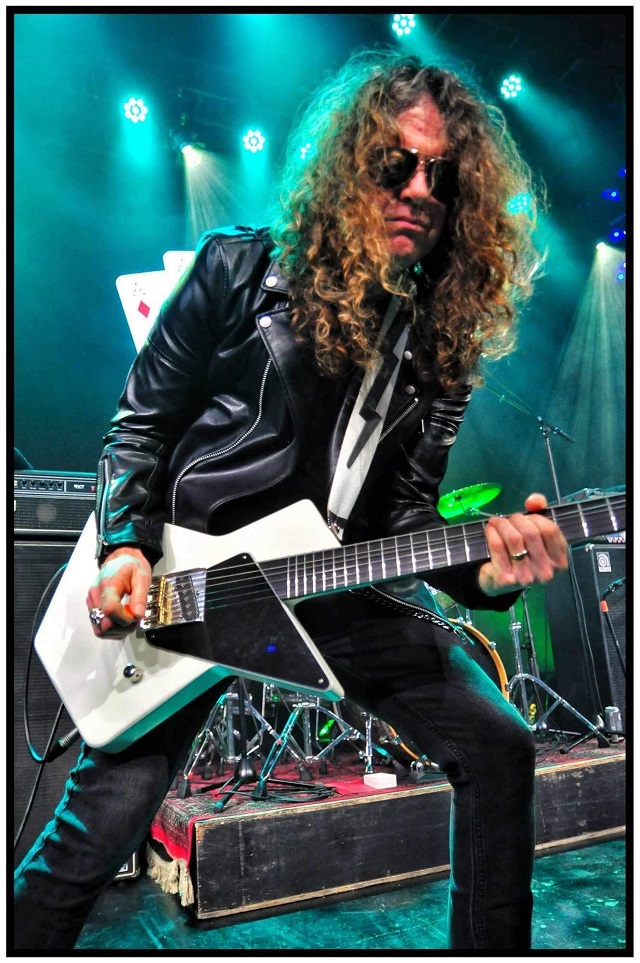
At the end of the book, Sean states, “Bands like Pantera, Jane’s Addiction and Alice In Chains were bubbling under and suggesting a new direction, a way forward. A case could be made for Pantera being the one band that managed to forge a completely new path for heavy guitar-based rock while remaining loyal to the ideas of the ‘80s rock that came before it, namely highly technical guitar solos and wildly excessive behavior.” If you’ve watched any of Pantera’s home videos on VHS or DVD, it’s complete mayhem! “Absolutely. You know what’s funny with those guys? Both Dimebag (from Pantera) and Dave Navarro (from Jane’s Addiction) – they never wavered from celebrating the guitar players they grew up on. To me, it was just an extension. I didn’t see the need to totally dismiss everything that came before it, in the name of the new stuff. When Jane’s Addiction came out, I really didn’t think it was that markedly different than L.A. Guns – Hollywood Vampires. It just seemed like the darker side of L.A. But eventually, there was something that defined both those bands, where one band was able to survive, and the other one kind of had to go underground for a bit. But L.A. Guns is back out doing the same sort of thing now. There’s been a resurgence in interest there too, and they continue to put out new music. At the end of the day, artistic impetus and artistic drive is the same in anybody; it just manifests itself differently.”
The way Sean looks at Jane’s Addiction is almost like a cultural study. “The lyrics were as far removed from ‘Cherry Pie’ (by Warrant) as you could get… sex and drugs took on a darkly spiritual aspect, seemingly connected to real people with real feelings as opposed to disposable playthings, especially in the depictions of women.” “‘80s rock started to get so formulaic. Every label had a W band – Warrant, Whitesnake, Winger, White Lion. The genre became over-commercialized with the bean counters looking for the next big thing. And it was so dismissive of women. With the exception of Vixen, Lita Ford, and Lee Aaron, women were painted in this kind of subservient, pleasure fulfilling role. Women were the topic of derision or subjugation. Really, bands like Jane’s Addiction made it inclusive for everybody, and I think that was appealing. By taking away the sexist element, you kind of open up your audience by 50%. ‘Hey, I can listen to this, and I don’t have to be the groupie.’”
Sean’s band Crash Kelly is working on an album of cover songs to accompany Don’t Call It Hair Metal. “I thought this would be a good opportunity, since I went into such detail about how this music affected me as a musician – why don’t I take on some of these classic tunes? Have some fun with it. I wanted to make a little companion album to go along with the book. To help propel interest in the book, but also to show how I’ve interpreted these songs. Crash Kelly is really a ‘70s glam meets early ‘80s Sunset Strip type band. So, what does a song from the late ‘80s sound like through that prism? I’m not out to reinvent the wheel, I’m out to have fun with this, and to pay tribute. But also, to express myself through these great compositions. I just thought it would be a fun companion piece, and a good way to help promote the book. But also, really, it’s like anything I do. It feels like something I need to do. And there’s a third book on the way. This one’s going to be dealing with guitars and ‘80s guitarists specifically. Diving into the emotional connection between a player and his guitar.”
